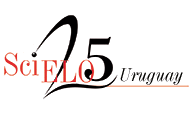Reflexões ecócritas sobre ficção escrita pelo ganhador do prêmio Nobel Mario Vargas Llosa
DOI:
https://doi.org/10.25185/13.7Palavras-chave:
Ecocrítica, Literatura peruana, Mario Vargas Llosa, Meio ambiente, O Falador, O Sonho do CeltaResumo
Este artigo examina as tendências antropocêntricas e ecocêntricas em duas grandes obras escritas por Mario Vargas Llosa, O Faldor e O Sonho do Celta, para identificar o valor dessas obras em termos ecocríticos. Apresento esta análise no contexto de um diálogo acadêmico recente que observa uma relação aparentemente contraditória entre a apresentação de abusos do povo amazônico e seu meio ambiente e a representação de protagonistas ocidentalizados como seus salvadores na narrativa escrita por Vargas Llosa. Este ensaio fornece uma solução para esse paradoxo e outras aparentes contradições na ficção de Vargas Llosa e postula que, embora o discurso literário antropocêntrico sobre o meio ambiente tenha declinado ao longo da última parte do século XX, em parte devido ao surgimento do movimento ambientalista, esse tipo de discurso mudou nas obras de Vargas Llosa, rejeitando os equívocos do início do século XX sobre o mundo natural, mas se apegando a crenças neoliberais tecnocêntricas.
Downloads
Referências
Beattie, Mollie. “Environmentalism.” In The Book of Green Quotations, edited by James Daley, 43-54. New York: Dover Publications, 2009.
Booker, Keith. Vargas Llosa Among the Postmodernists. Gainesville: University Press of Florida, 1994.
Buell, Lawrence. The Environmental Imagination: Thoreau, Nature Writing, and the Formation of American Culture. Cambridge: Harvard University Press, 1995. DOI: https://doi.org/10.2307/j.ctv1nzfgsv
Buell, Lawrence. The Future of Environmental Criticism: Environmental Crisis and Literary Imagination. Oxford: Blackwell, 2005.
Castro-Klarén, Sara. “Mario Vargas Llosa: A Retrospective Look.” MLN 131, nº 2 (2016): 536-550. DOI: https://doi.org/10.1353/mln.2016.0021
Devall, Bill, and George Sessions. Deep Ecology: Living as if Nature Mattered. Salt Lake City: Gibbs M. Smith, 1985.
Foucault, Michel. The Order of Things. New York: Vintage Books, 1970.
Fox, Nicholas. Against the Machine: The Hidden Luddite Tradition in Literature, Art, and Individual Lives. Washington, DC: Island Press, 2002.
Hassan, Ihab. “Toward a Concept of Postmodernism.” In A Postmodern Reader, edited by Linda Hutcheon and Joseph Natoli, 273-286. Albany: State University of New York Press, 1993.
Hutcheon, Linda. “Historiographic Metafiction: Parody and the Intertextuality of
History.” In Intertextuality and Contemporary American Fiction, edited by
Patrick O'Donnell and Robert Con Davis, 3-32. Baltimore: Johns Hopkins University Press, 1989.
Hutcheon, Linda. The Politics of Postmodernism. New York: Routledge, 1989.
Kokotovic, Misha. “Mario Vargas Llosa Writes Of(f) the Native: Modernity and Cultural Heterogeneity in Peru.” Revista Canadiense de Estudios Hispánicos 25, nº 3
(2001): 445-467.
McGuire, John W. “The Postmodern Turn in Vargas Llosa: Historia de Mayta, El hablador, Lituma en los Andes.” Doctoral dissertation, University of California, 2000.
Oviedo, José M. Mario Vargas Llosa: la invención de una realidad. Seix Barral, 1982.
Policsek, Cecilia. “El forjamiento de ‘lo latinoamericano’ en moldes editoriales: sobre el caso rumano en el período 2004–2015.” Neophilologus 103 (2019): 83-97. DOI: https://doi.org/10.1007/s11061-018-9580-x
Prado, Benjamín. “El nuevo ocho mil de Vargas Llosa.” Cuadernos hispanoamericanos 725 (2010): 5-8.
Rogers, Charlotte. “Mario Vargas Llosa and the novela de la selva.” Bulletin of Spanish Studies 93, nº 6 (2016): 1043-1060. DOI: https://doi.org/10.1080/14753820.2016.1176299
Sá, Lúcia. “Perverse Tribute: Mario Vargas Llosa’s El hablador and its Machiguenga
Sources.” Journal of Iberian and Latin American Studies 4, nº 2 (1998): 145-164. DOI: https://doi.org/10.1080/13507499808569476
Saramago, Victoria. Fictional Environments, Volume 37: mimesis, deforestation, and development in Lain America, Northwestern UP, 2021. DOI: https://doi.org/10.2307/j.ctv18phht8
Sommer, Doris. “About-Face: The Talker Turns.” boundary 2 23, nº 1 (1996): 91-133. DOI: https://doi.org/10.2307/303578
Urroz, Eloy. “Karl Popper y Mario Vargas Llosa: ¿igualidad o libertad?” Revista de la Universidad de México 88 (2011): 31-40.
Vargas Llosa, Mario. “Breve discurso sobre la cultura.” Letras Libres 139 (2010): 48-55.
Vargas Llosa, Mario. The Dream of the Celt. Translated by Edith Grossman. New York: Farrar, Straus and Giroux, 2012.
Vargas Llosa, Mario. The Storyteller. Translated by Helen Lane. New York: Penguin Books, 1989.
Vallier, Kevin, “Neoliberalism.” In The Stanford Encyclopedia of Philosophy, edited by Edward N. Zalta, Summer 2021, https://plato.stanford.edu/archives/sum2021/entries/neoliberalism/.
Volek, Emil. “El hablador de Vargas Llosa. Del realismo mágico a la postmodernidad.” Cuadernos hispanoamericanos 509 (1992): 95-102.
Walford, Lynn M. A Matter of Life and Death: José María Arguedas, Mario Vargas Llosa, and the Postmodern Condition. Doctoral dissertation, Louisiana State University, 2000.
Williams, Raymond L. “Los niveles de la realidad, la función de lo racional y los demonios: El hablador y Lituma en los Andes.” Explicación de textos literarios 25 (1996-1997): 141-54.
Williams, Raymond L. The Postmodern Novel in Latin America: Politics, Culture, and the Crisis of Truth. New York: St. Martin's Press, 1996.
Williams, Raymond L. The Twentieth-Century Spanish American Novel. Austin: University of Texas Press, 2003.
Wiseman, David P. “Mario Vargas Llosa and the Politics of Literature.” Doctoral dissertation, Vanderbilt University, 2010.
Publicado
Como Citar
Edição
Seção
Licença
Copyright (c) 2023 William Flores

Este trabalho está licenciado sob uma licença Creative Commons Attribution 4.0 International License.





























 Este trabalho está sob uma licença de
Este trabalho está sob uma licença de 